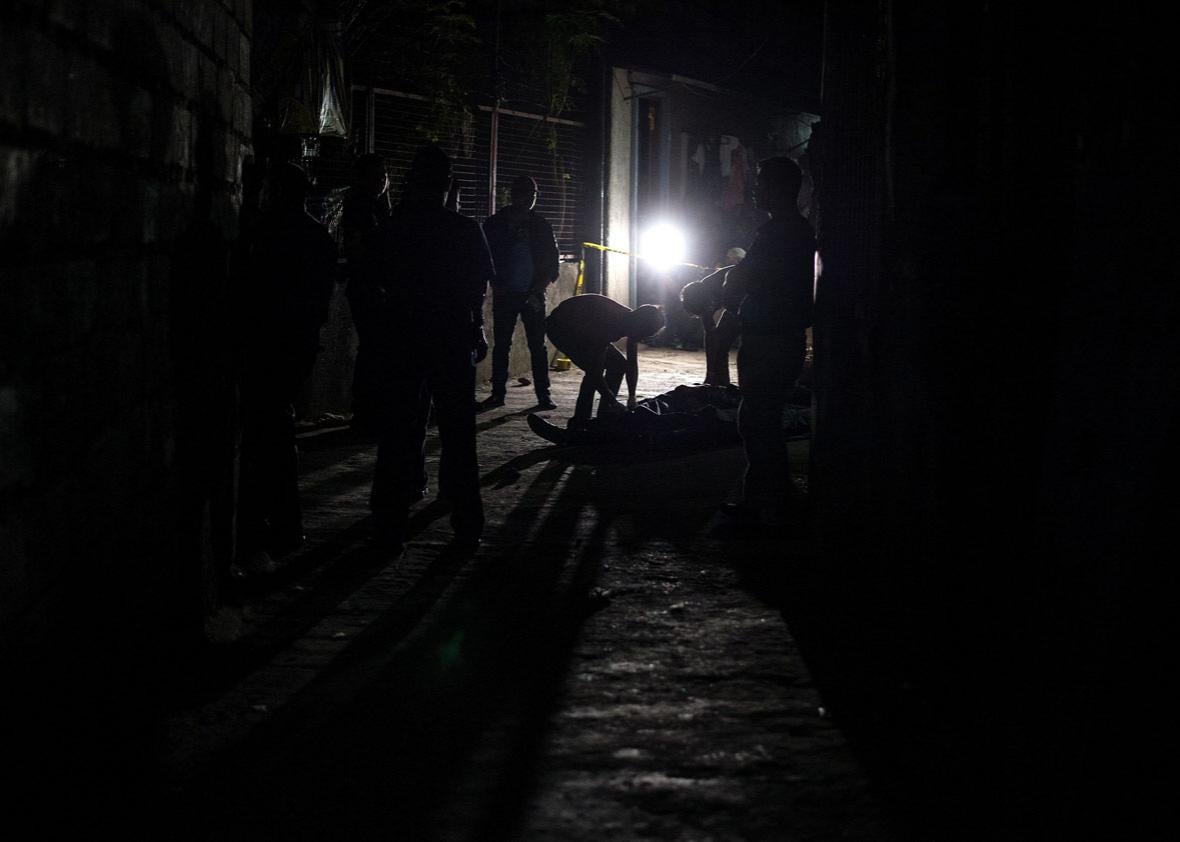The Washington Post has provided new details on last month’s already controversial call between Donald Trump and Philippines President Rodrigo Duterte. According to a Philippines government transcript, Trump praised Duterte for doing an “unbelievable job on the drug problem,” despite widespread reports that Duterte’s unbelievable job has involved thousands of extrajudicial killings. “Many countries have the problem, we have the problem, but what a great job you are doing and I just wanted to call and tell you that,” Trump says, adding that, “we had a previous president who did not understand that.”
This is yet another example of the Trump administration’s contempt for human rights. But the truth is that U.S. support for draconian antidrug measures around the world is not exactly new.
The U.S. has pushed countries to adopt tough anti-drug policies for decades, and often funded those efforts directly. The U.S. provided more than $2 billion to Mexico to combat drug trafficking since 2007, despite evidence of dozens of instances of extrajudicial killings and enforced disappearances by security forces, not to mention the widespread use of torture against detainees as part of the country’s ongoing drug war.
The U.S. devoted more than $10 billion over 15 years to Plan Colombia, an initiative that’s had mixed success at curbing drug trafficking and political violence in the country. There have been allegations of hundreds of extrajudicial killings by the military during this period and the government, with U.S. blessing, gave impunity to paramilitary groups. Earlier this year, Colombia’s former president, Cesar Gaviria, who later came to support drug law reform, wrote an op-ed urging Duterte against “repeating my mistakes.”
In 2003, an allegedly government-approved vigilante campaign against drug dealers in Thailand killed nearly 3,000 people. During that time and the years after, the United States provided Thailand with more than $3 million a year in counternarcotics aid. The U.S. has also continued to provide counternarcotics aid and praise to Indonesia, where nonviolent drug offenders can get the death penalty.
Even Duterte’s Philippines got a boost in military aid from the United States while the Obama administration was criticizing its abuses.
There were some signs of a shift in U.S. policy toward the end of the Obama years. The U.S. withheld some aid to Mexico in late 2015 because of human rights violations and deferred some aid to the Philippines last December. (It’s tempting to wonder if this would have happened if Duterte hadn’t been such a loudmouth, comparing himself to Hitler and calling Obama the “son of a whore.”) With more American states legalizing marijuana, the U.S. has also become somewhat more open to accepting progressive harm reduction strategies, including decriminalization, at the United Nations. (Russia is now emerging as the leader of countries pushing for zero tolerance.)
The Trump administration is likely to set America’s global drug policies back to the status quo. What’s different is that he’s fine with praising governments for killing and torturing people in their drug crackdowns rather than at least saying he’s not OK with it.
